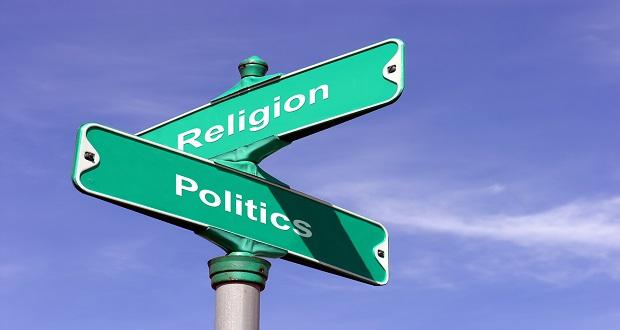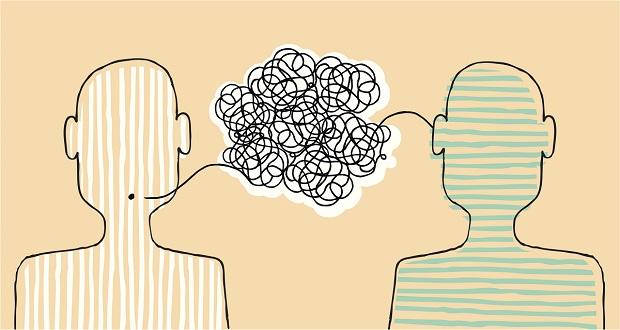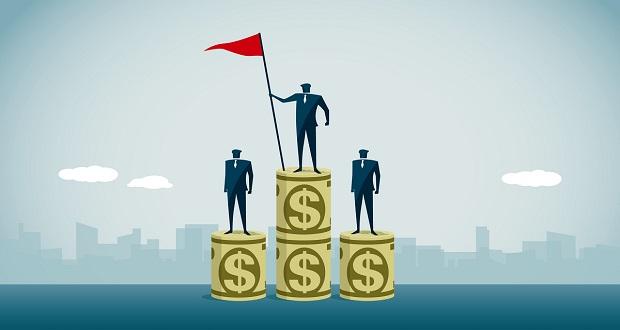The waves of polarizing ideas in the US are creating a subsequent ripple of discussions on our freedom to speak about those ideas. University campuses are wrestling with the tension between upholding the value of freedom of speech on the one hand, and the value of justice in protecting marginalized groups who suffer the effects of some, more hurtful free speech on the other. In a culture where the democratic spirit of dialogue reigns supreme it is no wonder that these are contentious issues with no clear end in sight.
Within this marketplace of ideas, one that is consistently overlooked is that many of the ideals—especially the most polarizing—on the front stage of national debate are, at their core, religious ideals. And like all marketplaces, some ideals are more represented, espoused, and equitably treated than others.
Ask yourself, which religious ideas do we deem acceptable as a larger society, and which do we deem as radical or dangerous? Which religious ideals do we widely claim as foundational to this country, and which do some worry are a threat to our national security? Which religious values are compatible with our national economic policies, and which run counter to such policies, making them less palatable for some?
While religious values and the rhetoric around them may be at the core of our political polarization, religion is often left out of discussions of politics and polarization. One of the reasons, I think, is our unspoken commitment to “rational” public debate – a supposedly superior dialogue that includes the deeper values of our spiritual and religious beliefs—which we have previously taken for granted, assuming people were speaking from their moral centers. Although our deeper moral values have always been the bedrock of our “rational”, fact-based arguments, we are no longer consistently dealing with rationality or facts. We are living in unique times shaped by a “post-fact” culture filled with accusations of fake news from all sides and enflamed by the technologies that feed us the information that keeps us clicking back for more—regardless of the relative merit of the information.
It is increasingly easier for us to only ever see the reality we want to see rather than the reality that actually surrounds us. And as the ideals of the political Right and Left are now more pronounced than ever, those of us involved in efforts of equity and inclusion must add to our tool-kit the ability to talk about the deeper religious and moral values that lie at the heart of these polarizations. This will also mean paying attention to whose values, and ideals, are most often overlooked, suppressed and under-sourced.
I have been encouraged during the Trump era by the “rise” of the religious Left—a group that is often not included in discussions about the role of religion and politics. Even my use of “rise” plays into the notion that this is the least represented religious group in national debates, when the truth is, there have always been left-leaning people of faith involved in politics and social-justice. But most people (myself included), are more familiar with the Religious Right because they have been overrepresented in media—and have been most vocal in centering their religious values in political platforms, candidates, and debates.
However, there is a “new” movement of religious leaders, as this NY Times article describes, who claim the issues of poverty, healthcare, police brutality, war, and social justice as core to their political ideals and values. These leaders and others before them have not traditionally held an equitable seat the table, but their voices are being increasingly heard at a time when the socially, politically, and religiously marginalized are seeking greater societal equity.
Like all issues of equity—where the least heard voices are given the resources they need to succeed—the marketplace of religious ideas is desperate for a more diverse set of seats at the table. The payoff will not only be a more just, honest, and fair discussion of what is at the root of so many people’s ideals—and roots of polarization—but it will mean a more vibrant marketplace for all of us.
In an election where 81% of white evangelicals voted Trump and his divisive policies into power, it is increasingly vital that other groups of faith have a voice at the table to speak truth to power from their respective spiritual and religious traditions. We saw the power of this possibility last week when the Dominican nun, Sister Erica Jordan, asked Paul Ryan during a CNN town hall about his commitment to the Catholic ideal that “God is always on the side of the poor and dispossessed, as should we be.” Although I fundamentally disagree with his response, I was encouraged that the dialogue happened on a national stage. And I hope for increasing conversations that get at the root of our facts and figures to our deeper moral values—especially those that center the voices and issues of the least of these.



















